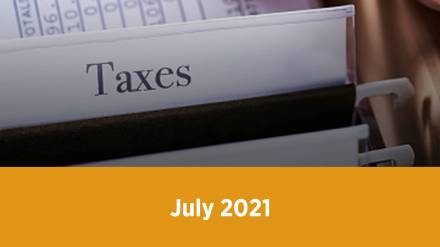Monthly requirements
If your church or organization reported withheld taxes of $50,000 or less during the most recent lookback period (for 2021 the lookback period is July 1, 2019, through June 30, 2020), then withheld payroll taxes are deposited monthly.
Monthly deposits are due by the 15th day of the following month. Note, however, that if withheld taxes are less than $2,500 at the end of any calendar quarter (March 31, June 30, September 30, or December 31), the church need not deposit the taxes.
Instead, it can pay the total withheld taxes directly to the IRS with its quarterly Form 941. Withheld taxes include federal income taxes withheld from employee wages, the employee’s share of Social Security and Medicare taxes, and the employer’s share of Social Security and Medicare taxes.
Semiweekly requirements
If your church or organization reported withheld taxes of more than $50,000 during the most recent lookback period (for 2021 the lookback period is July 1, 2019, through June 30, 2020), then the withheld payroll taxes are deposited semiweekly.
This means that for paydays falling on Wednesday, Thursday, or Friday, the payroll taxes must be deposited on or by the following Wednesday. For all other paydays, the payroll taxes must be deposited on the Friday following the payday.
Note further that large employers having withheld taxes of $100,000 or more at the end of any day must deposit the taxes by the next banking day. The deposit days are based on the timing of the employer’s payroll. Withheld taxes include federal income taxes withheld from employee wages, the employee’s share of Social Security and Medicare taxes, and the employer’s share of Social Security and Medicare taxes.
July 30, 2021: Employer exemption—Form 8274
Churches hiring their first nonminister employee between April 1 and June 30 may exempt themselves from the employer’s share of Social Security and Medicare taxes by filing Form 8274 by this date (nonminister employees are thereafter treated as self-employed for Social Security purposes).
The exemption is only available to churches that are opposed on the basis of religious principles to paying the employer’s share of Social Security and Medicare taxes.
For a complete guide to preparing W-2s and more helpful tips on all of the forms your church is required to file, see the annual Church & Clergy Tax Guide.






